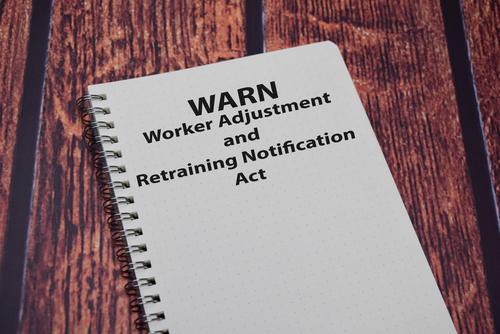
 847-995-1205
847-995-1205
The WARN Act Basics
 In the wake of the 2008 economic recession, employers across the state of Illinois were forced to layoff thousands of workers, leaving many Illinois families without steady income and without prospects. At the end of 2011 alone, more than 1,100 workers at 10 companies lost their jobs, according to the Chicago Tribune—including massive cuts at Sun-Times Media, which cut 456 jobs in the Chicago area at the end of that year. Prospects weren't much better at the beginning of 2012, when three major Illinois employers announced they'd layoff 260 employees, according to a different Tribune article.
In the wake of the 2008 economic recession, employers across the state of Illinois were forced to layoff thousands of workers, leaving many Illinois families without steady income and without prospects. At the end of 2011 alone, more than 1,100 workers at 10 companies lost their jobs, according to the Chicago Tribune—including massive cuts at Sun-Times Media, which cut 456 jobs in the Chicago area at the end of that year. Prospects weren't much better at the beginning of 2012, when three major Illinois employers announced they'd layoff 260 employees, according to a different Tribune article.
Things weren't looking up in the beginning of this year either, according to yet another Tribune article: “while the national unemployment rate fell to 7.7 percent [in February 2013], the jobless rate in Illinois rose to 9 percent.” Crain's Chicago Business reported, as cited in the Tribune, that while downtown Chicago was attracting more and more wealthy residents, poorer residents were fleeing the city. This is likely because while the Chicago area has gained jobs in retail, hospitality, and professional services in the past five years, the area has lost “thousands of good-paying jobs in construction, manufacturing, and government.”
There may be little recourse for the majority of Illinois residents who lost jobs in the manufacturing sector, but there might be for some. The Worker Adjustment and Retraining Notification (WARN) Act, according to the U.S. Department of Labor, requires that all employers “provide notification 60 calendar days in advance of plant closings and mass layoffs.” This is meant to allow families time to adjust to the loss of employment and seek other jobs. WARN allows disaffected workers to “enter skill training or retraining that will allow these workers to compete successfully in the job market.”
If you or someone you know was let go from a job without sufficient warning or without the opportunity to learn new necessary skills—especially in a changing economy such as Chicago's—you may be eligible for compensation. Don't go through it alone. Contact a dedicated Illinois employment attorney today.
Contact Us


Schaumburg, IL 60173
Phone: 847-995-1205
